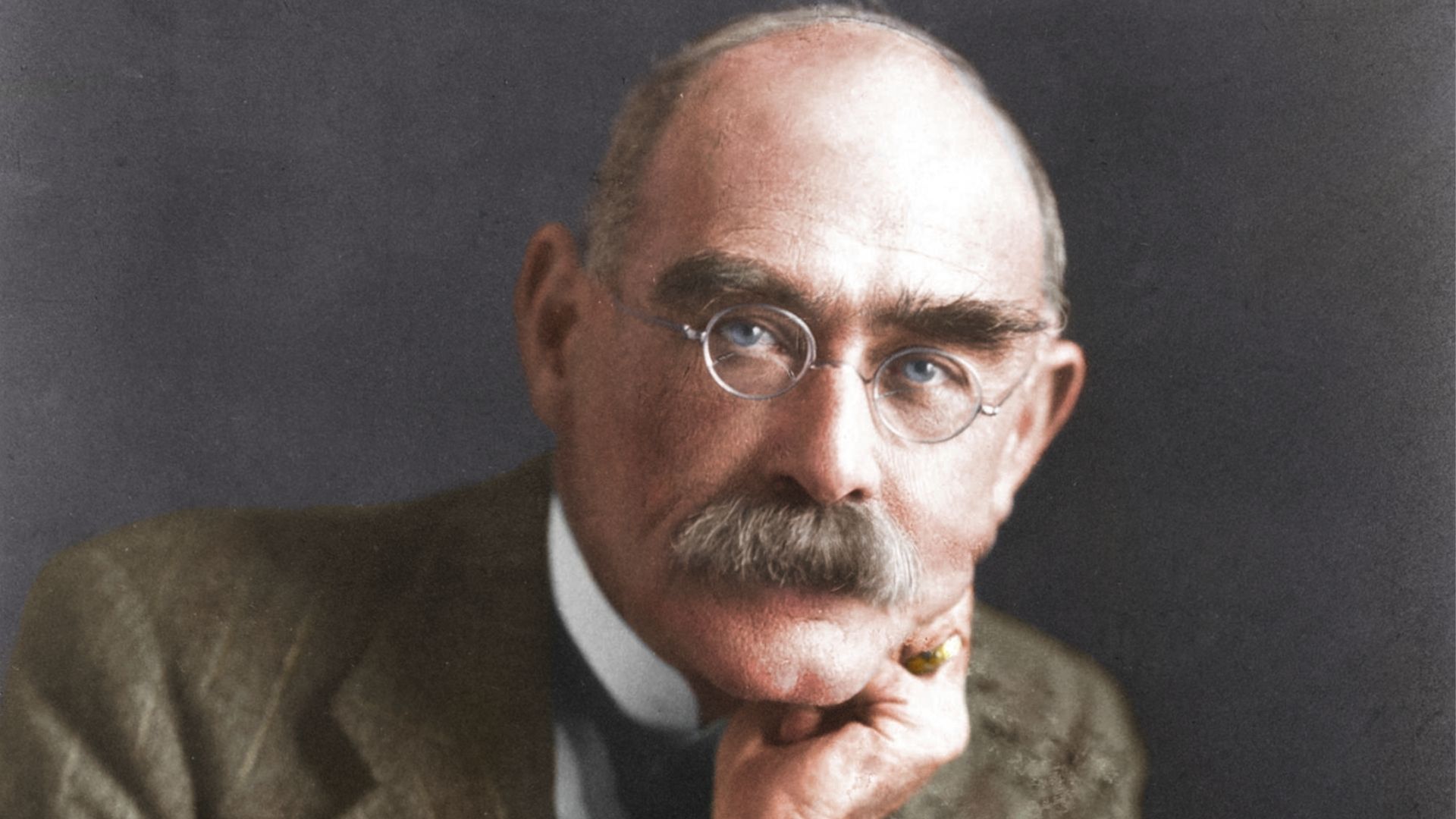Angutivaun Taina Poem by Rudyard Kipling
Angutivaun Taina
Our gloves are stiff with the frozen blood,
Our furs with the drifted snow,
As we come in with the seal--the seal!
In from the edge of the floe.
Au jana! Aua! Oha! Haq!
And the yelping dog-teams go;
And the long whips crack, and the men come back,
Back from the edge of the floe!
We tracked our seal to his secret place,
We heard him scratch below,
We made our mark, and we watched beside,
Out on the edge of the floe.
We raised our lance when he rose to breathe,
We drove it downward--so!
And we played him thus, and we killed him thus,
Out on the edge of the floe.
Our gloves are glued with the frozen blood,
Our eyes with the drifting snow;
But we come back to our wives again,
Back from the edge of the floe!
Au jana! Aua! Oha! Haq!
And the loaded dog-teams go;
And the wives ran hear their men come back,
Back from the edge of the floe!
when the hunters go for the seal hunting, using the dog carriages, they identified a male seal and killed that and the female seal will lose its male, but the male hunters return to their females...I think this is the meaning of this poem! Great! Kipling Sir! I can smell the Indian flavor in your poem!
Kipling has clearly depicted the picture of Arctic seal hunting very well in this beautiful poem! A very simple and effective poem to read!
The important setting of Kipling’s poem, ‘the edge of the floe’, repeated to end all six stanzas is key, to the multiple themes. The poem identifies the dangers of the extreme cold immediately focused upon with the opening line ‘Our gloves are stiff with the frozen blood’. Blood stiff on gloves in the harsh cold, introduces relentless killers and their excitement of closing upon the prey. ‘As we come in with the seal-the seal’ is a line of exhilaration. This is Man in triumph against nature, the environment, with ‘gloves... stiff with the frozen blood’ and their clothing, protective furs, frozen from ‘the drifted snow’. The great adventure is paramount, ‘the yelping dog-teams’, ‘the long whips crack’ leads into the journey, tracking ‘seal to his secret place’ and the descriptive technique in the thrill of the hunt. The ambush spot, the waiting, the irony of the killing lance of death being driven into the seal, as they surface for the breath of life. The merciless enjoyed cruelty of this hunting, impacts with ‘And we played him thus, and we killed him thus’. Kipling reinforces this cruelty like the cat toying with a mouse, as imagery of heartless indifference. The conclusion with the safe return home and joy of reunion with wives, who run at the sound of their men's voices is brilliant. A dangerous livelihood is won at risk of peril, a time of rejoicing and bounty will ensue for a while.
Through stormy night and beautiful) sunny day (woe and well the poem has been written may be mastermind writing
Trouble, joy, suffering due to ice-floe, slid during spring nicely painted
You surely know how to wrote, I like each and every poem of yours
A beautifully written honest piece which had me imagining the grasping cold breaths. The bravery the honesty of the hunt. Where all are vulnerable and trying to provide for there loved ones with a triumphant return. I hate the food cycle but its a necessary way. This beats all the hypocrisy of waltzing through a supermarket oblivious of how and who wrapped it in cellophane. I think this is beautifully written and the chant goes towards the strengthening heave ho of a group.
This poem has not been translated into any other language yet.
I would like to translate this poem
There is no cruelty here - this is a poem decribing man's way of surviving for millions of years. The seal eats fish, man eats seal. This poem is as sharp as the lance that takes the seal.